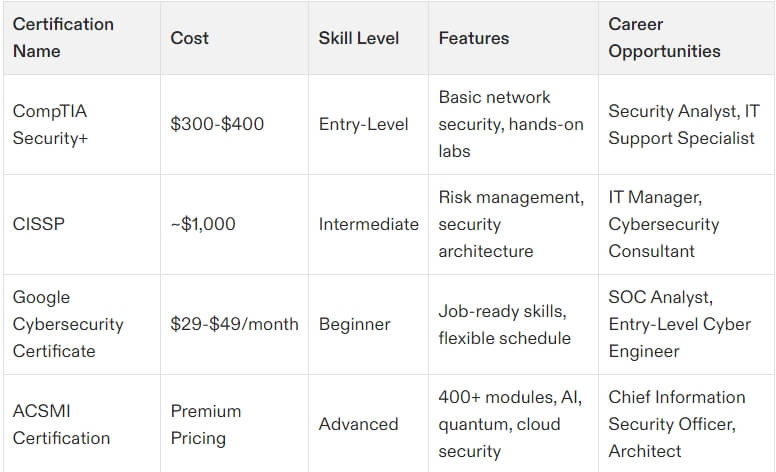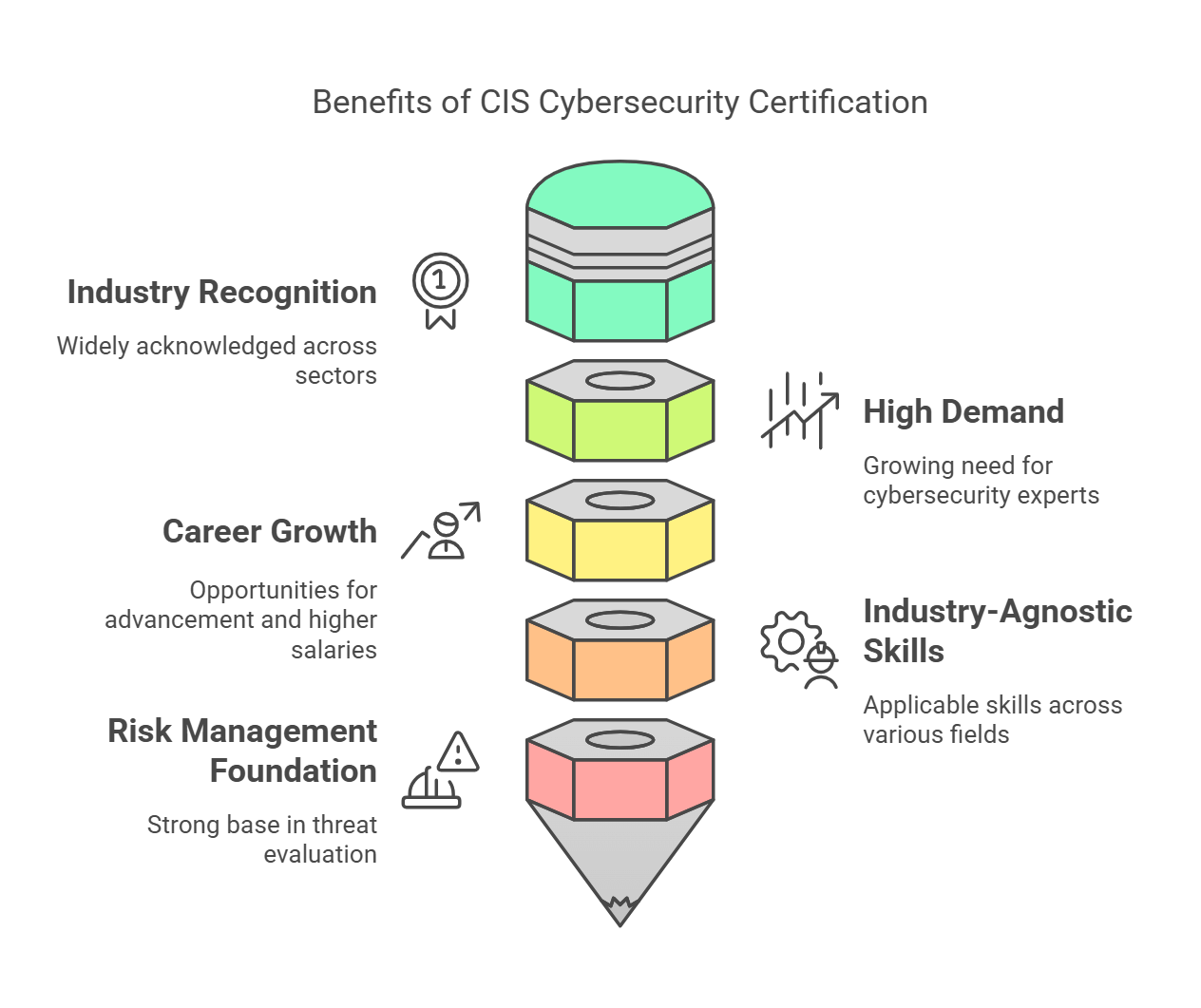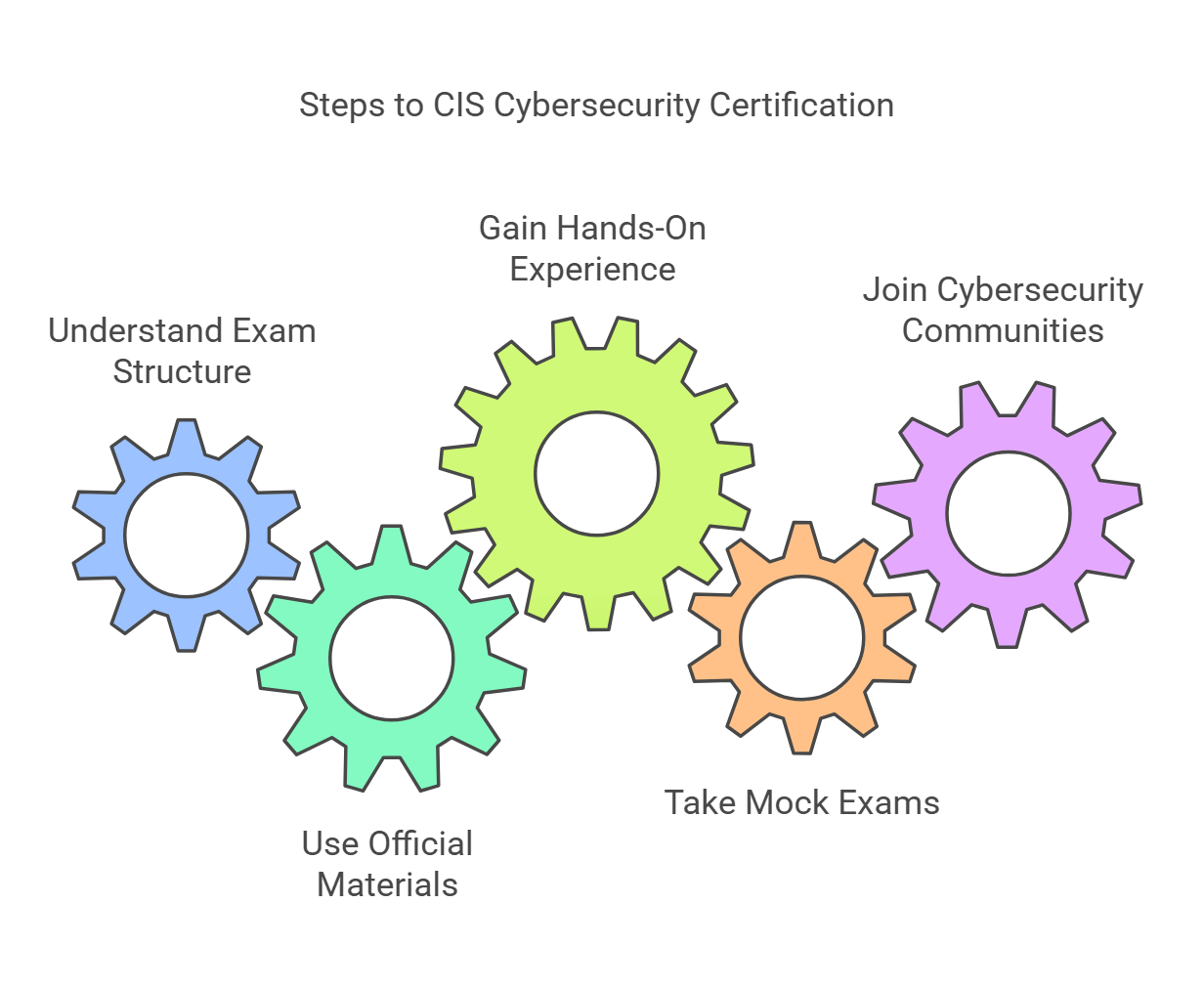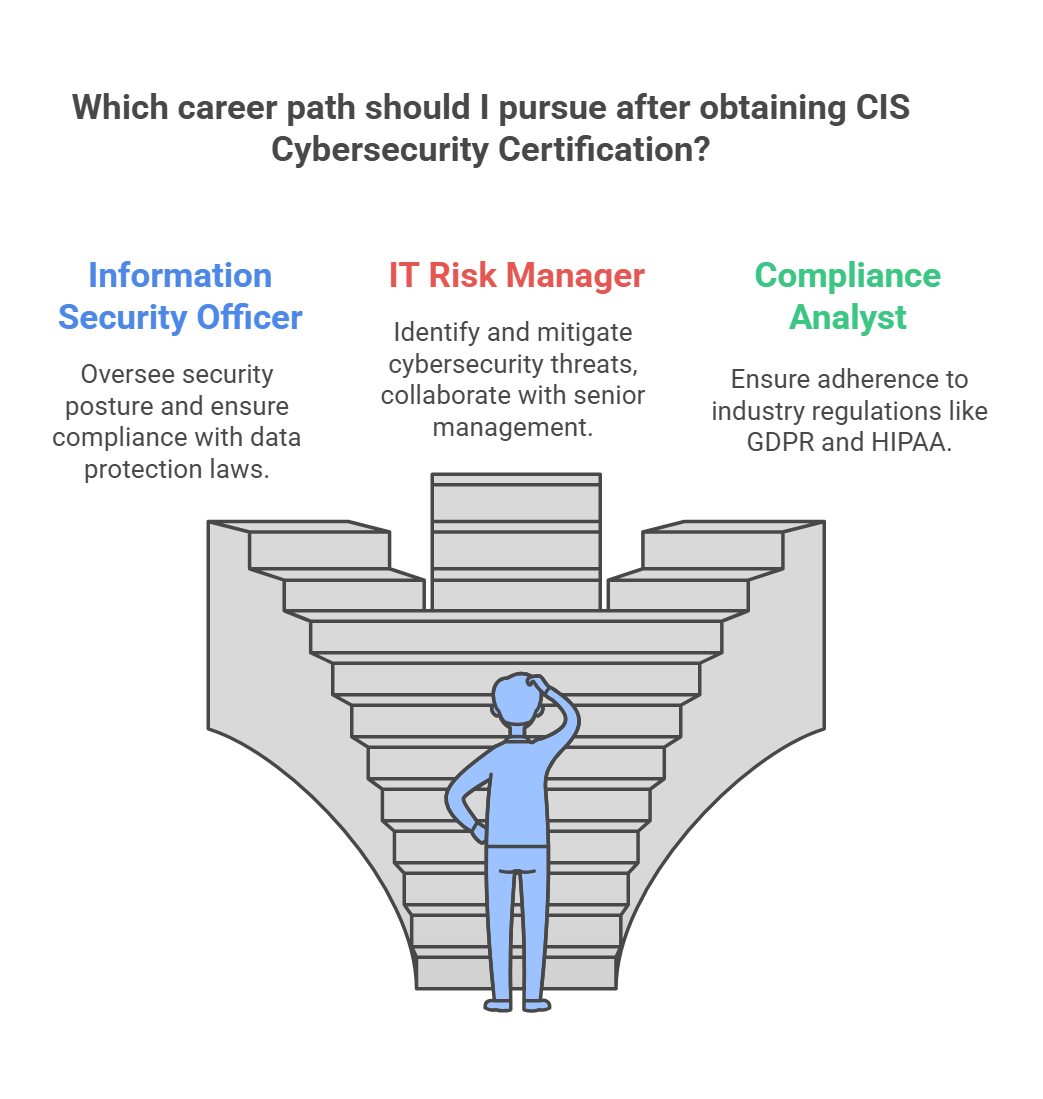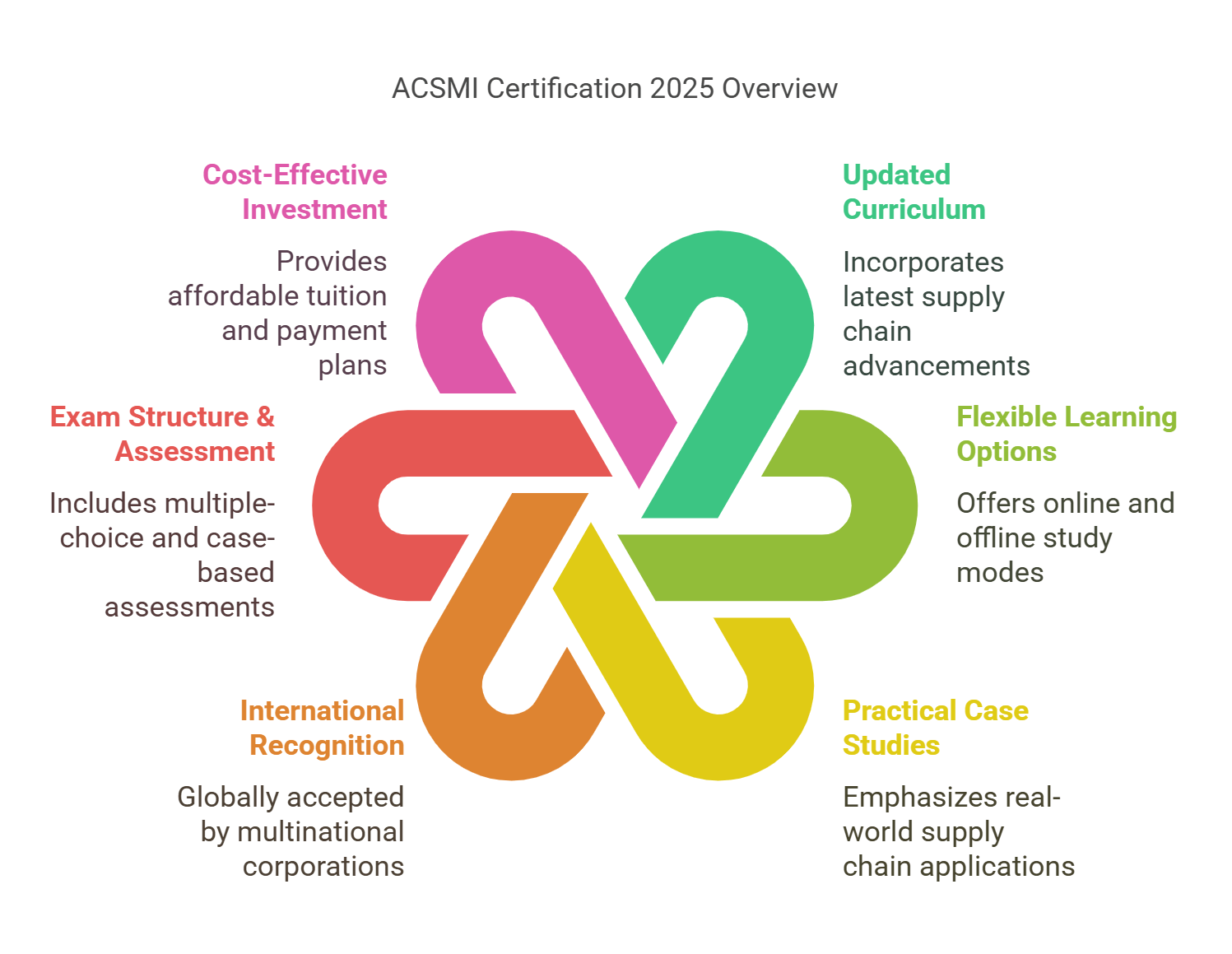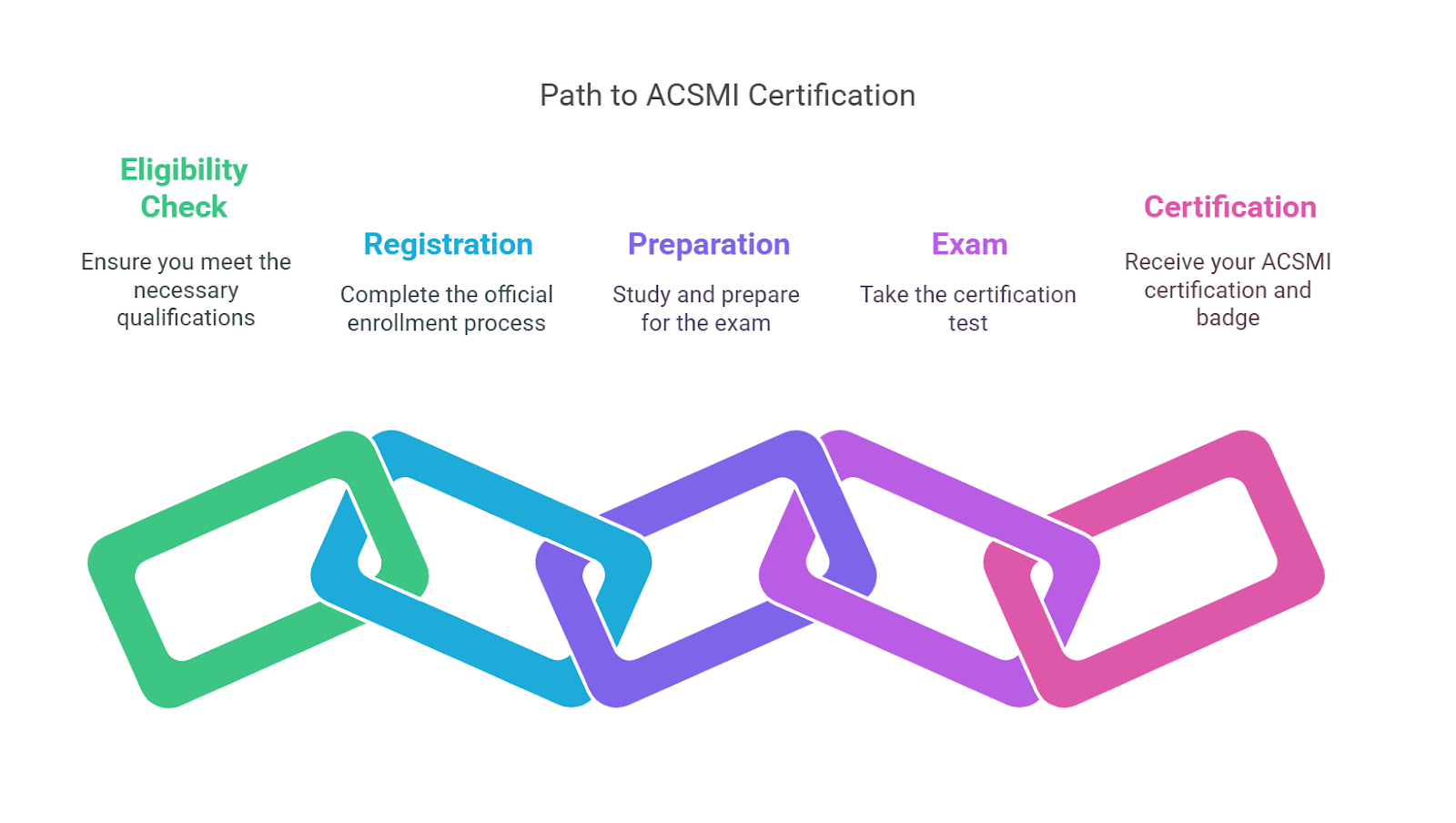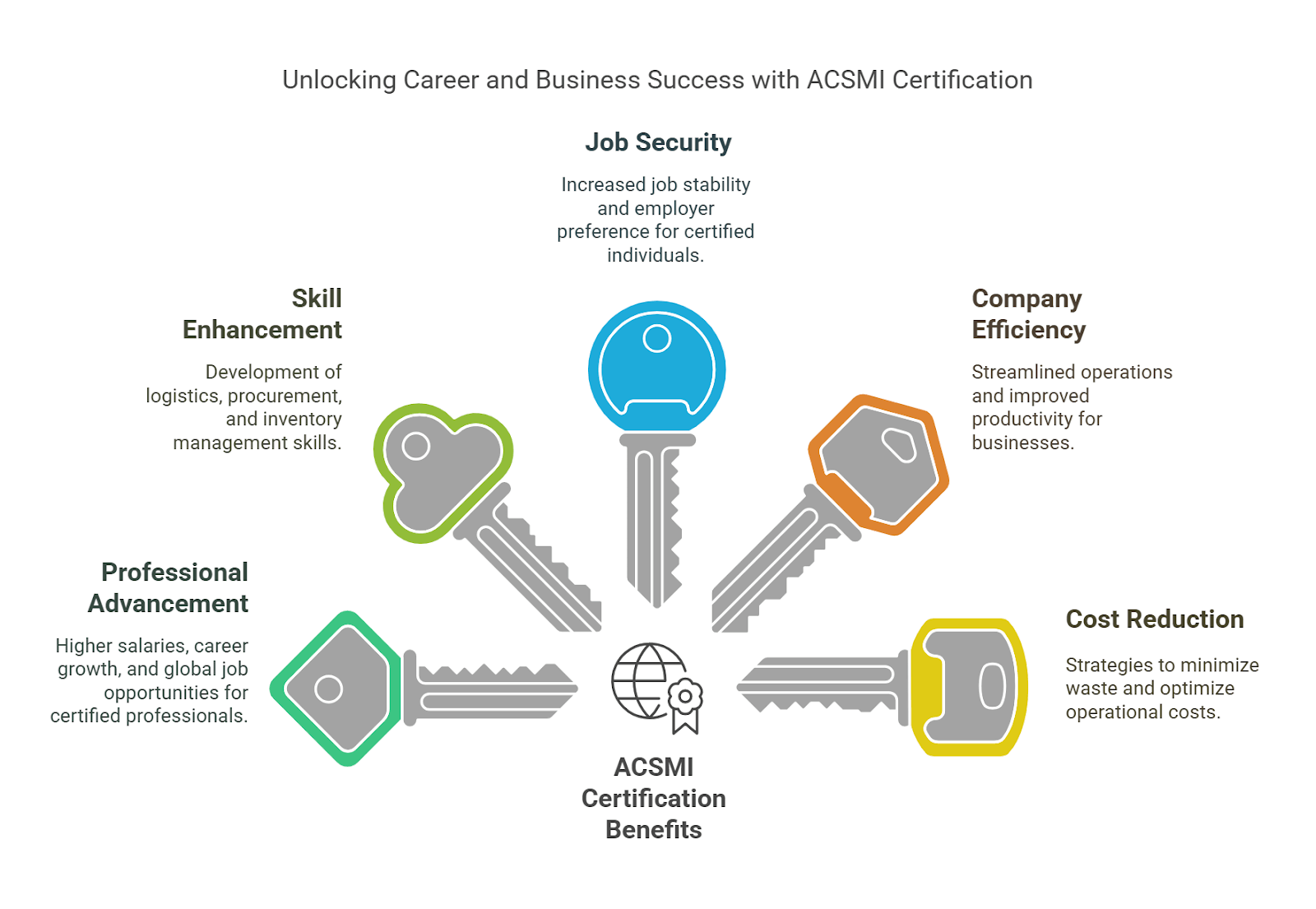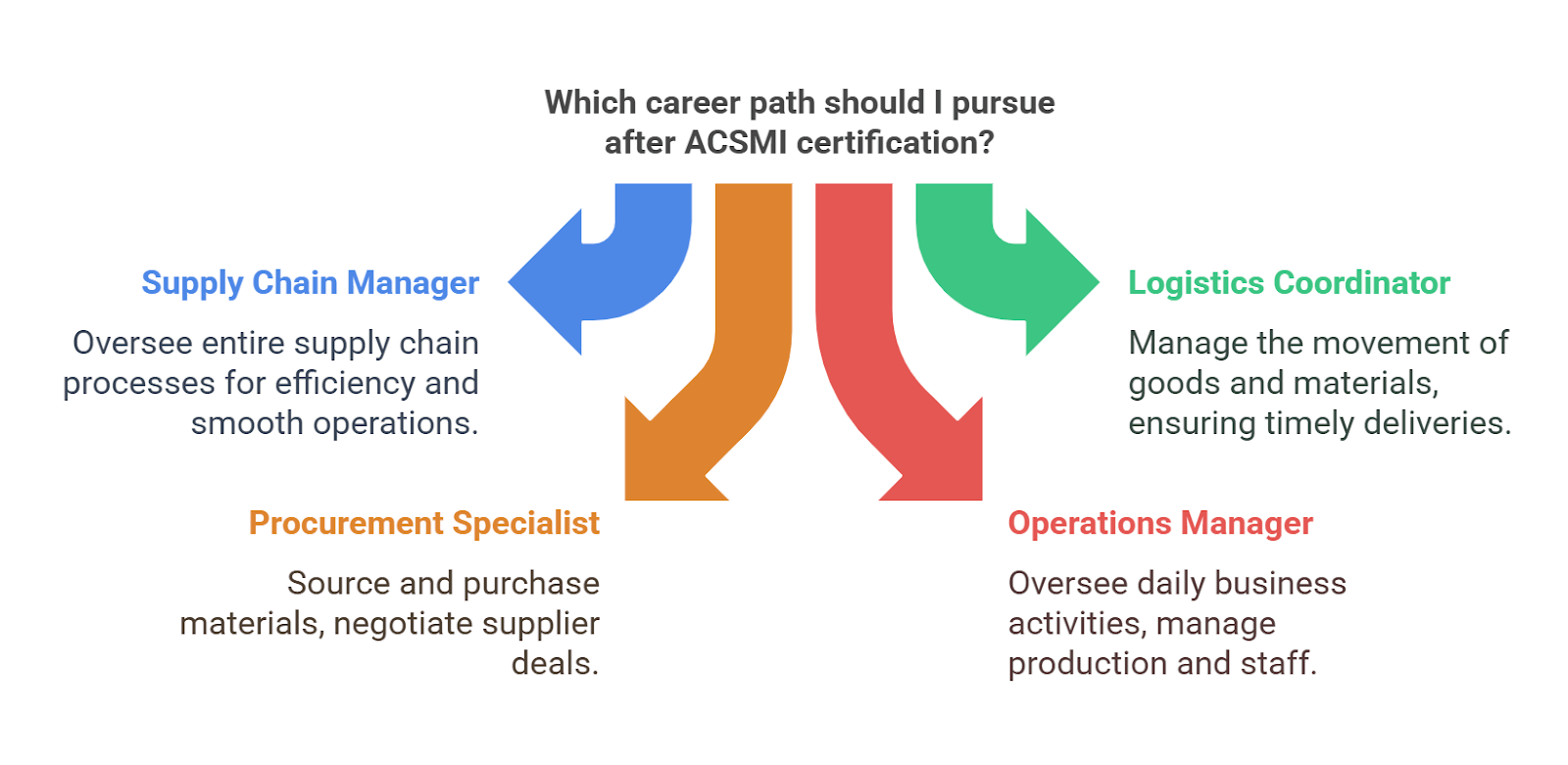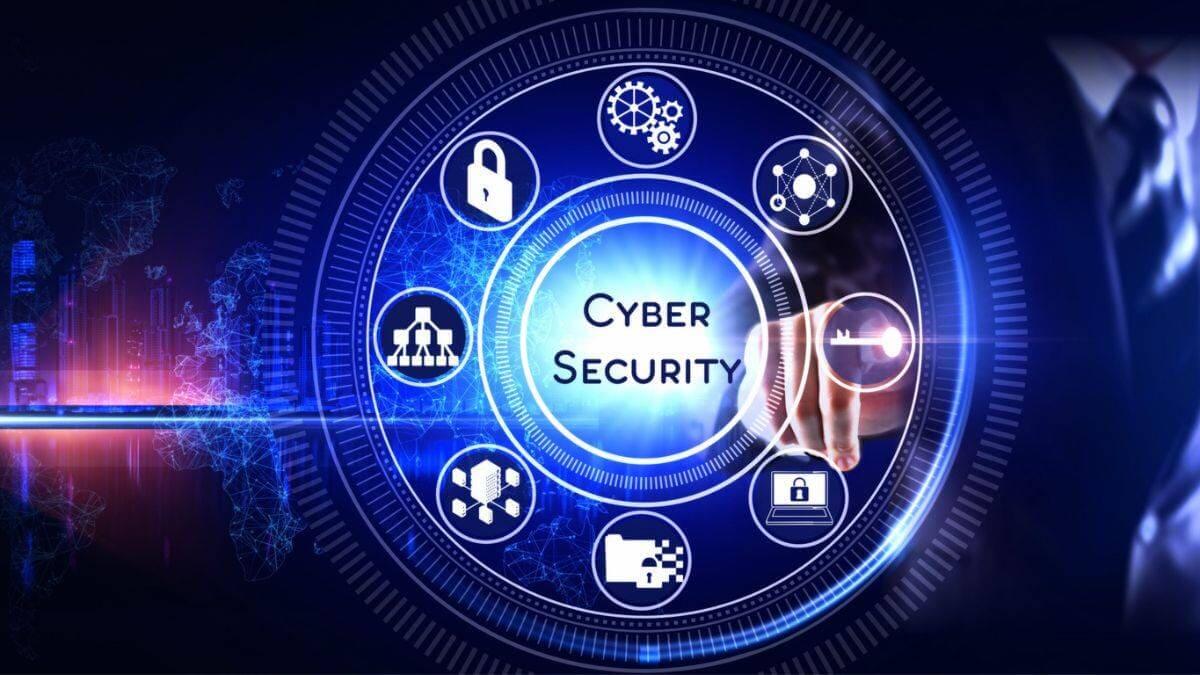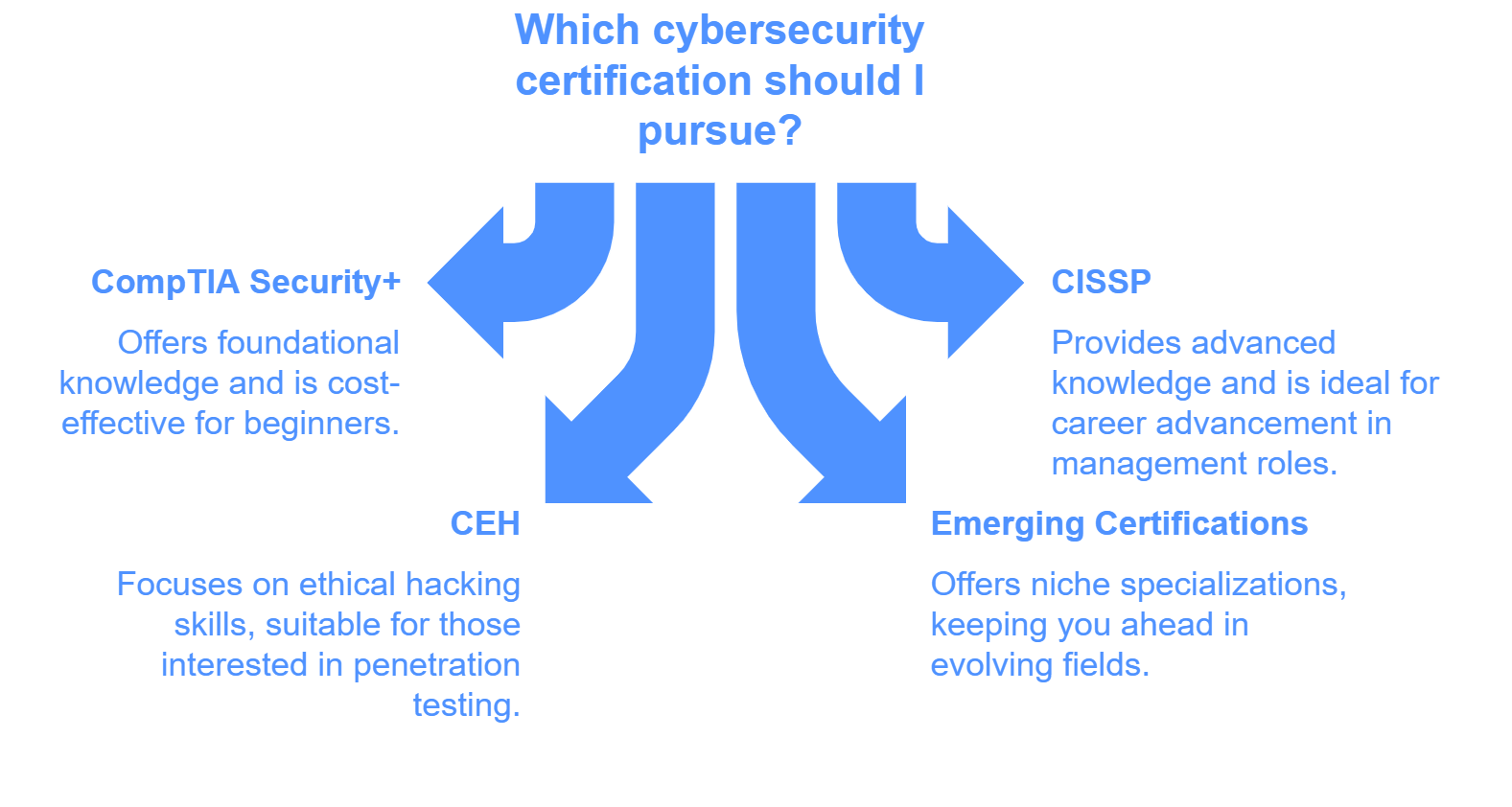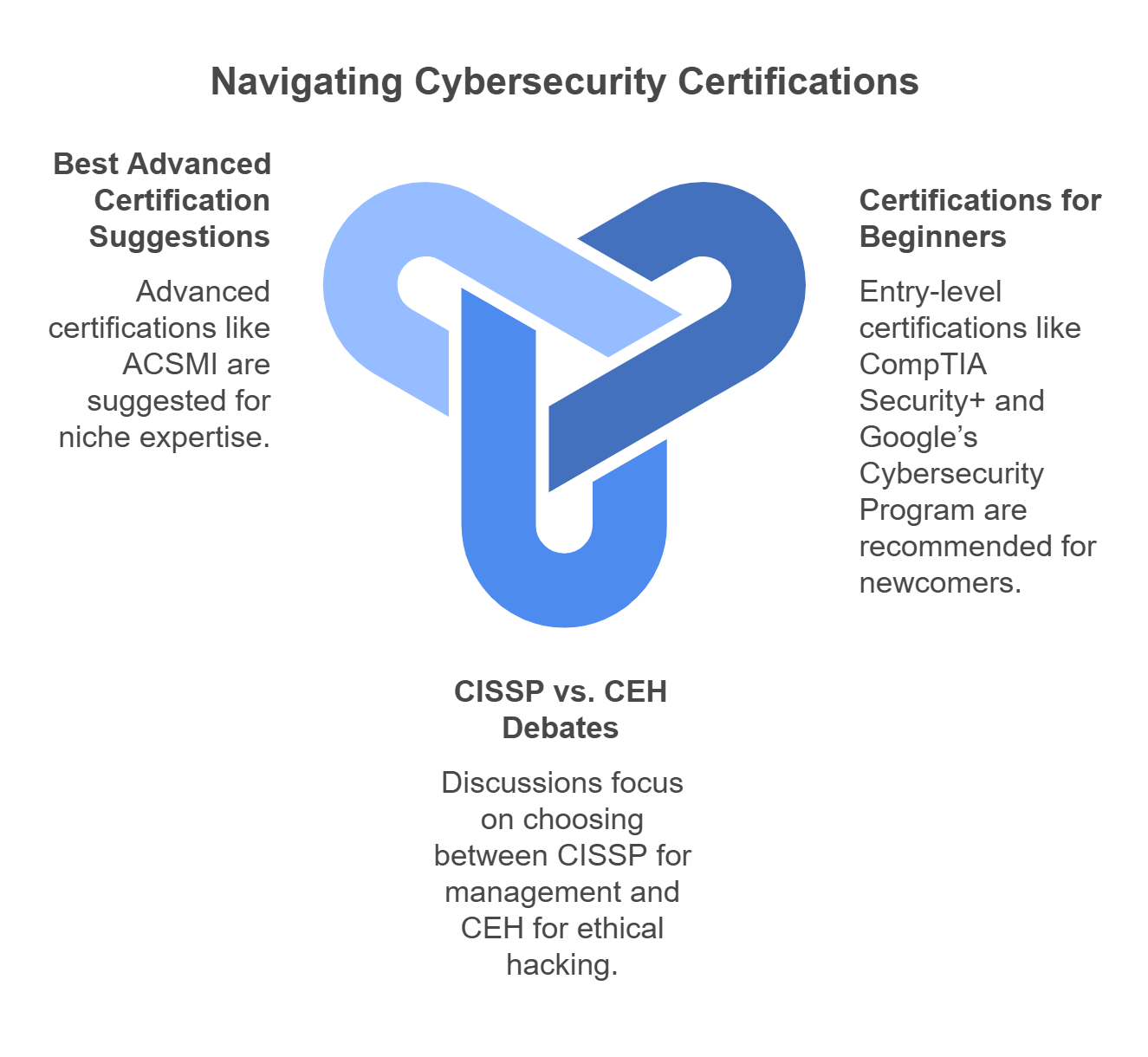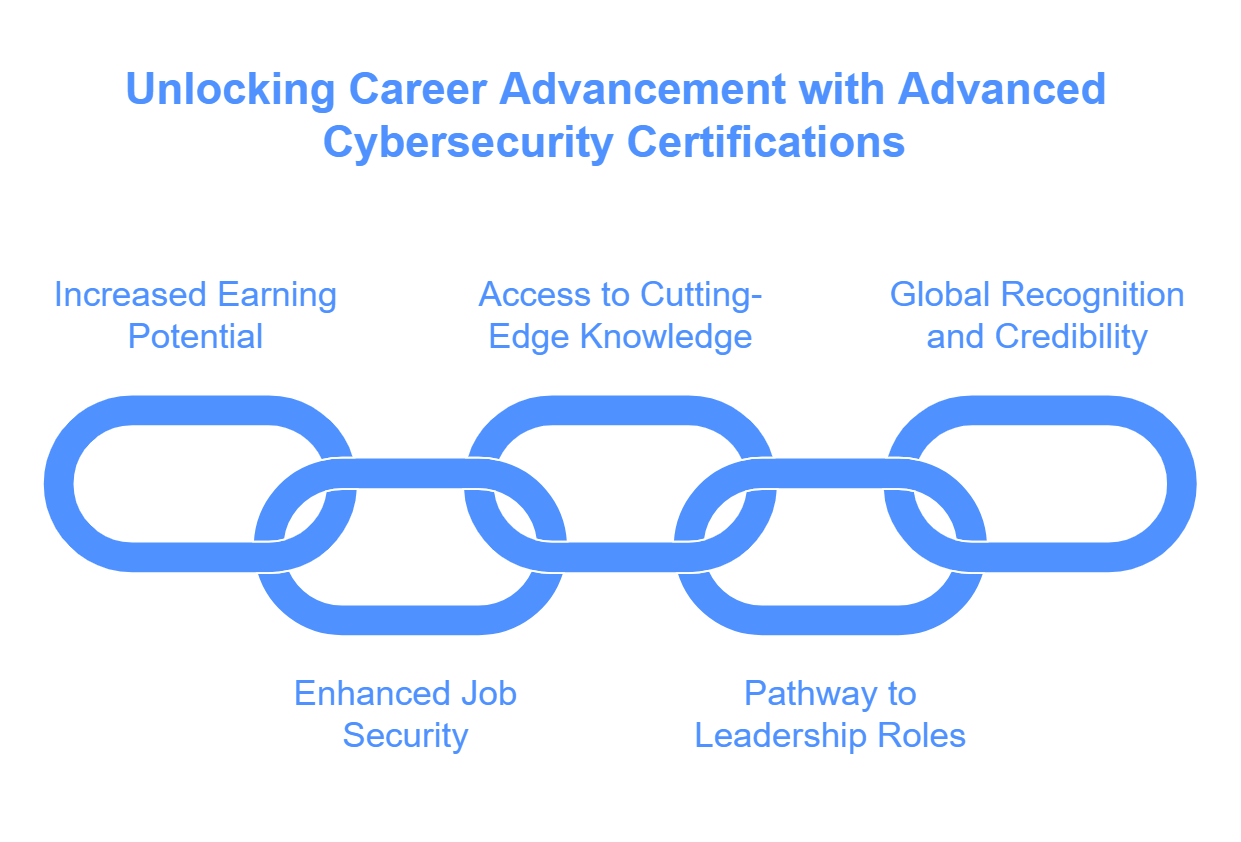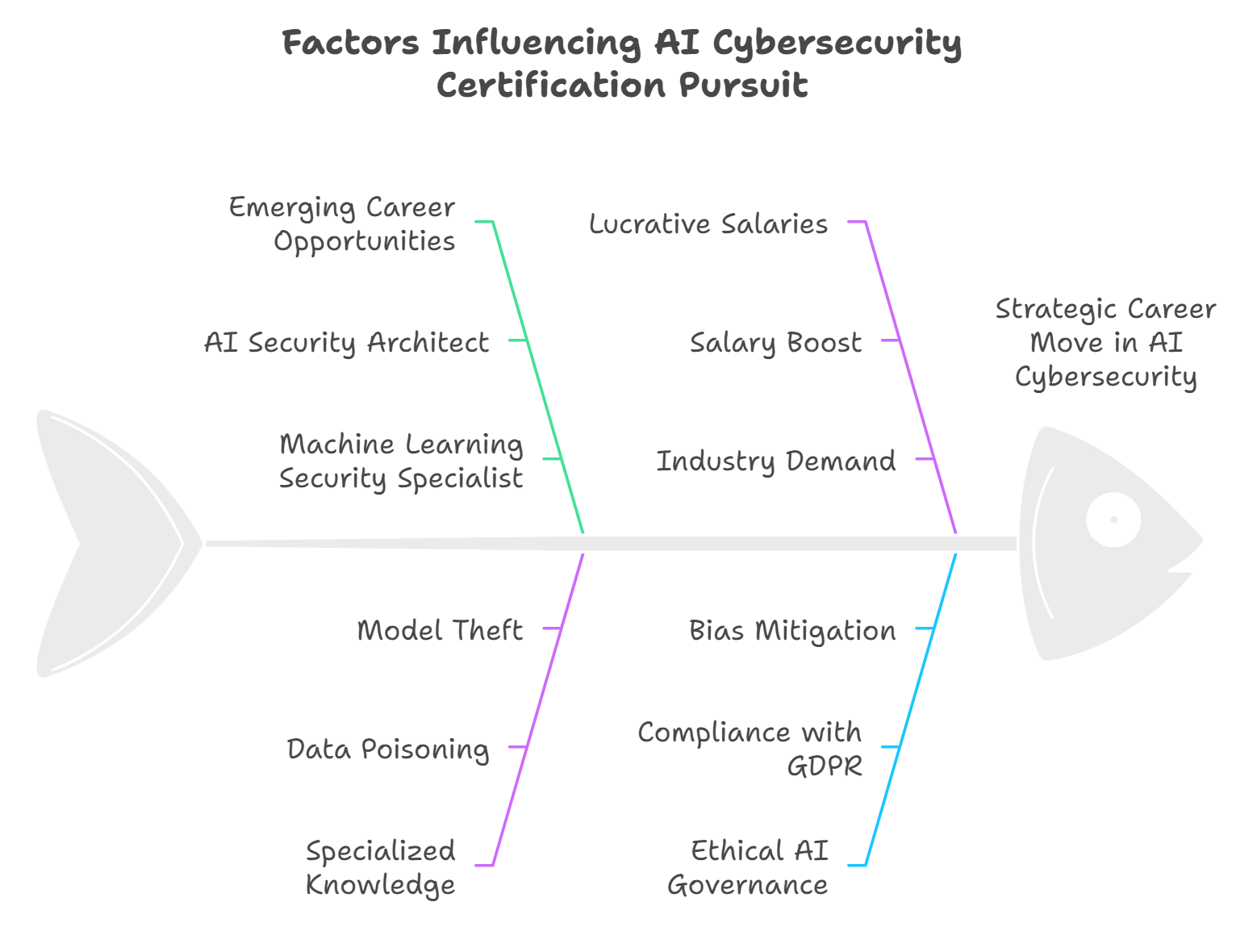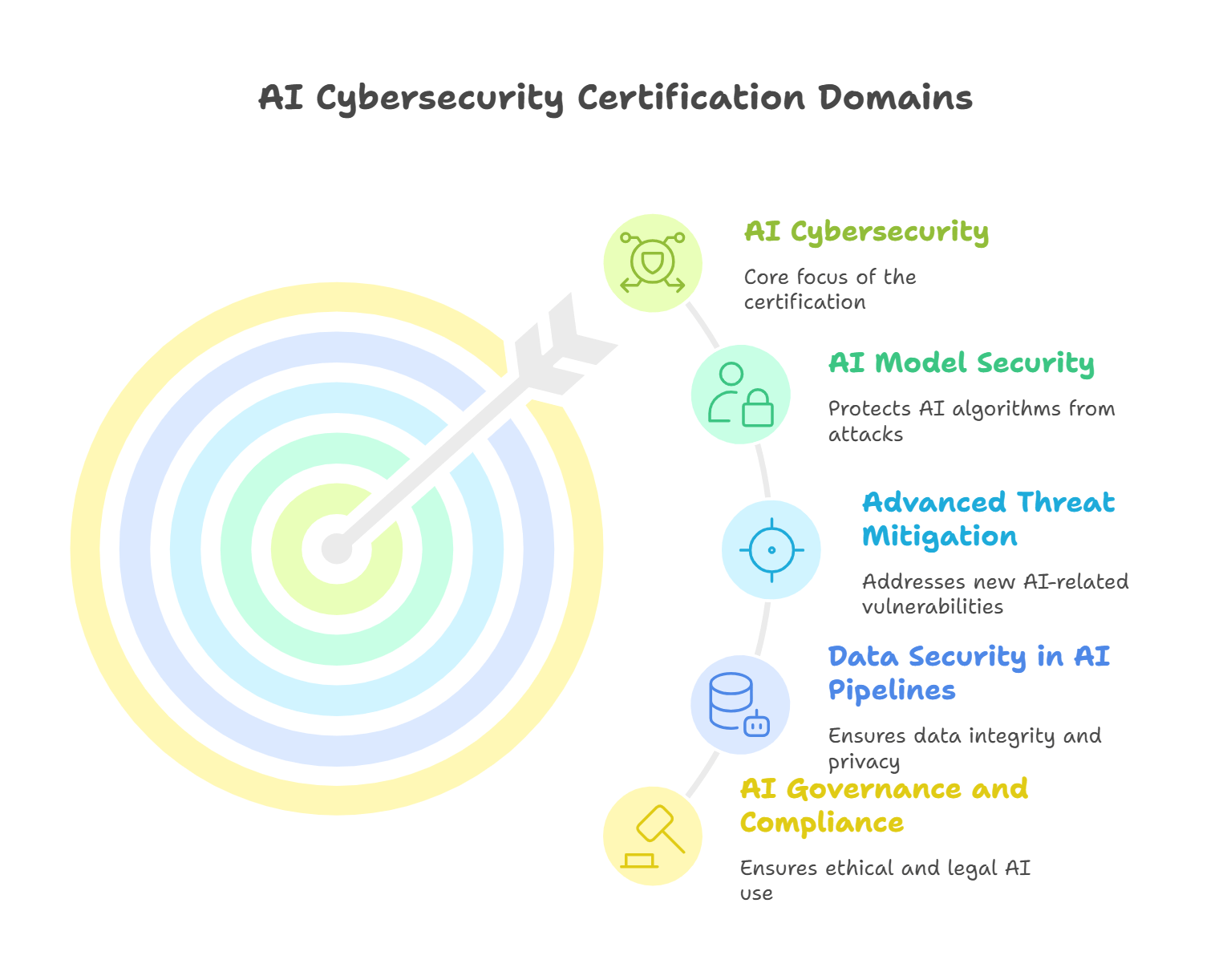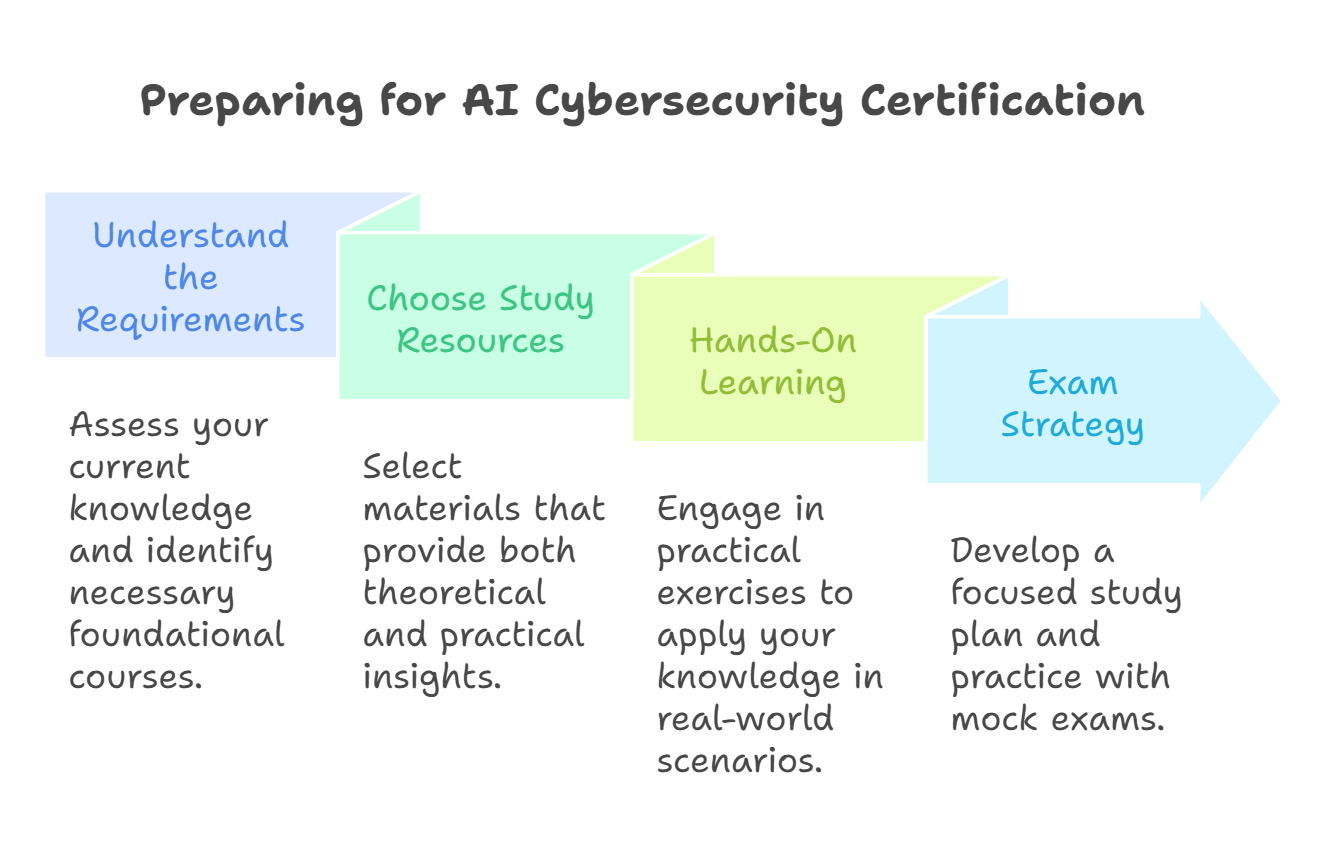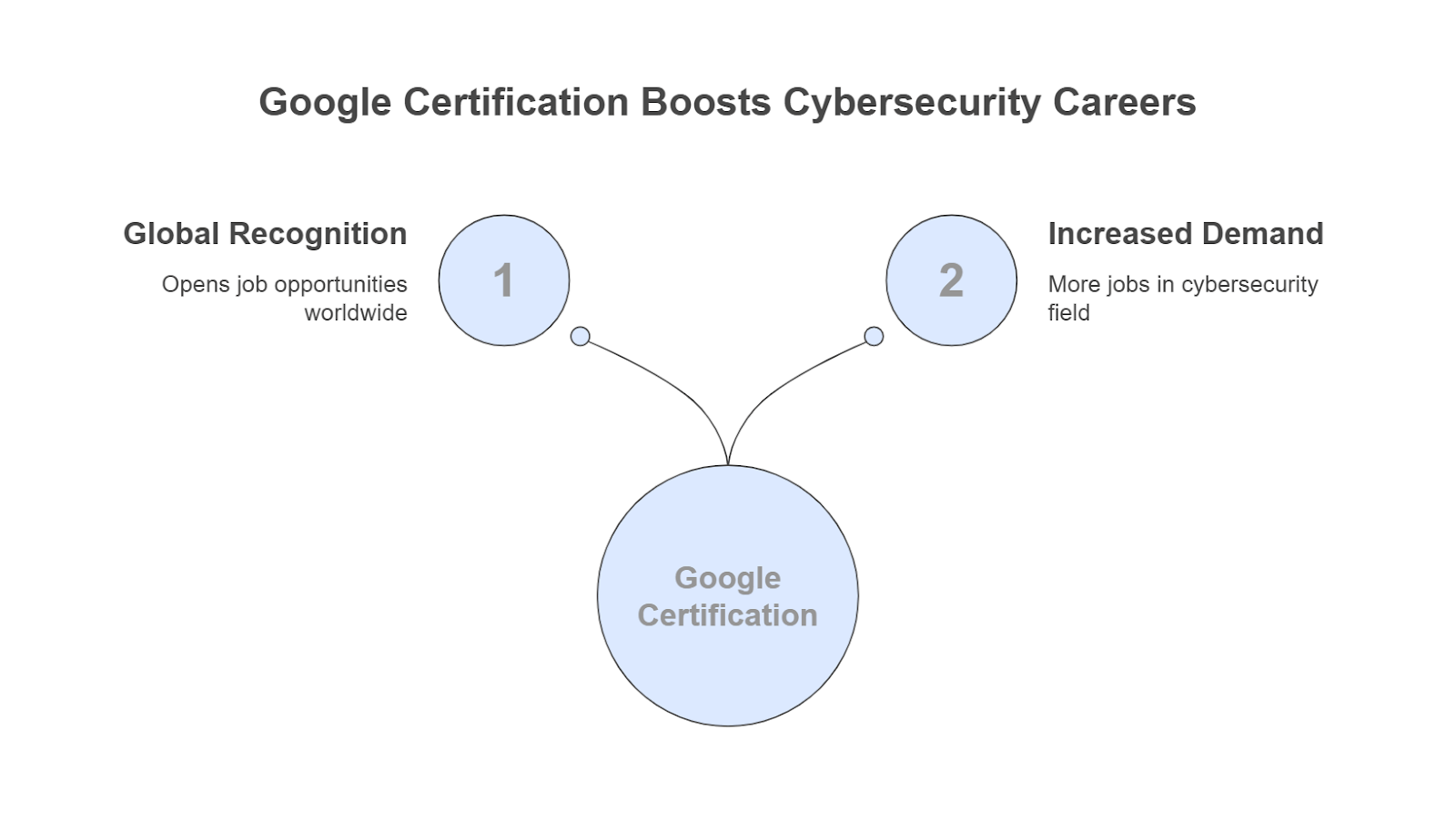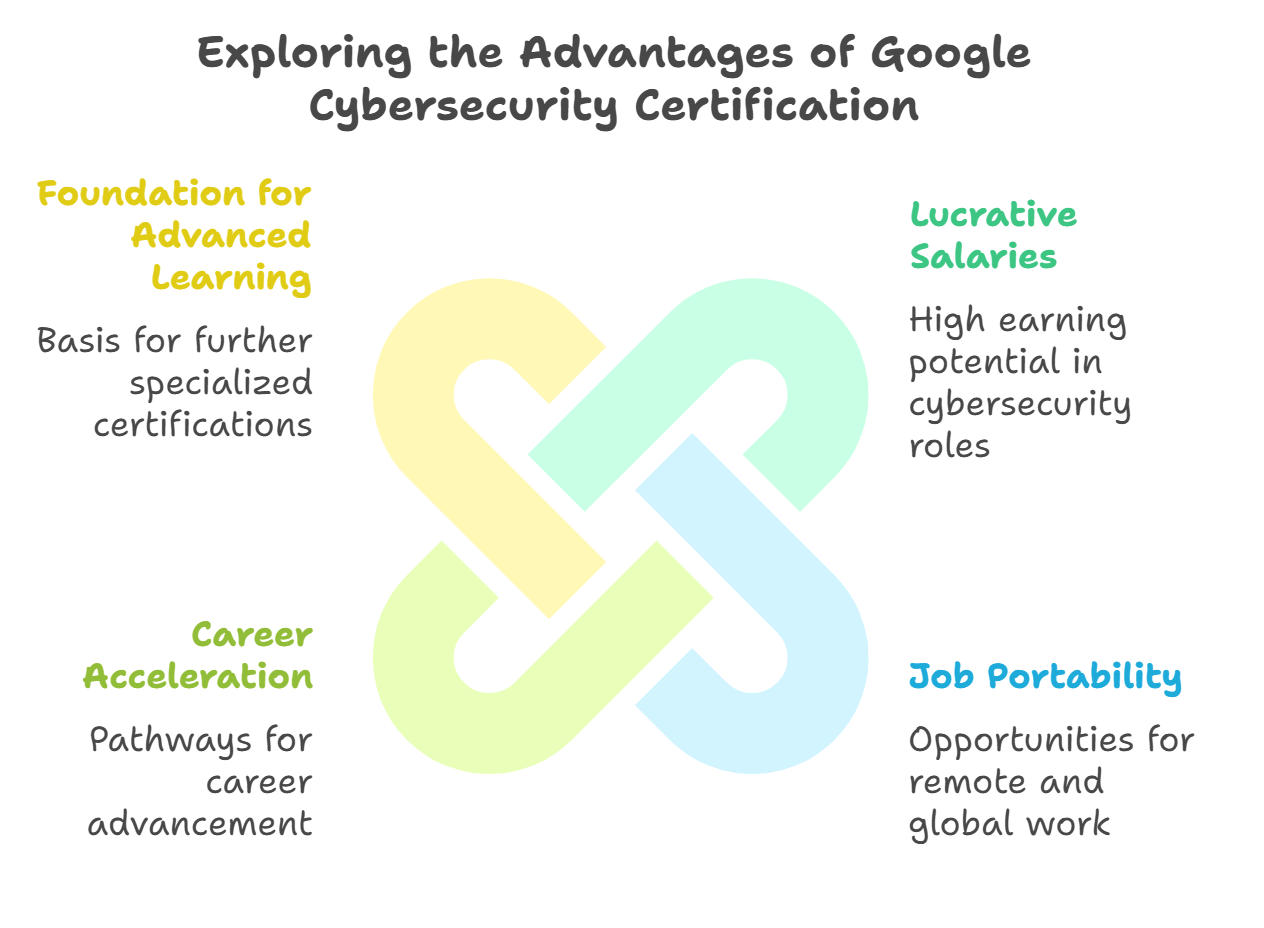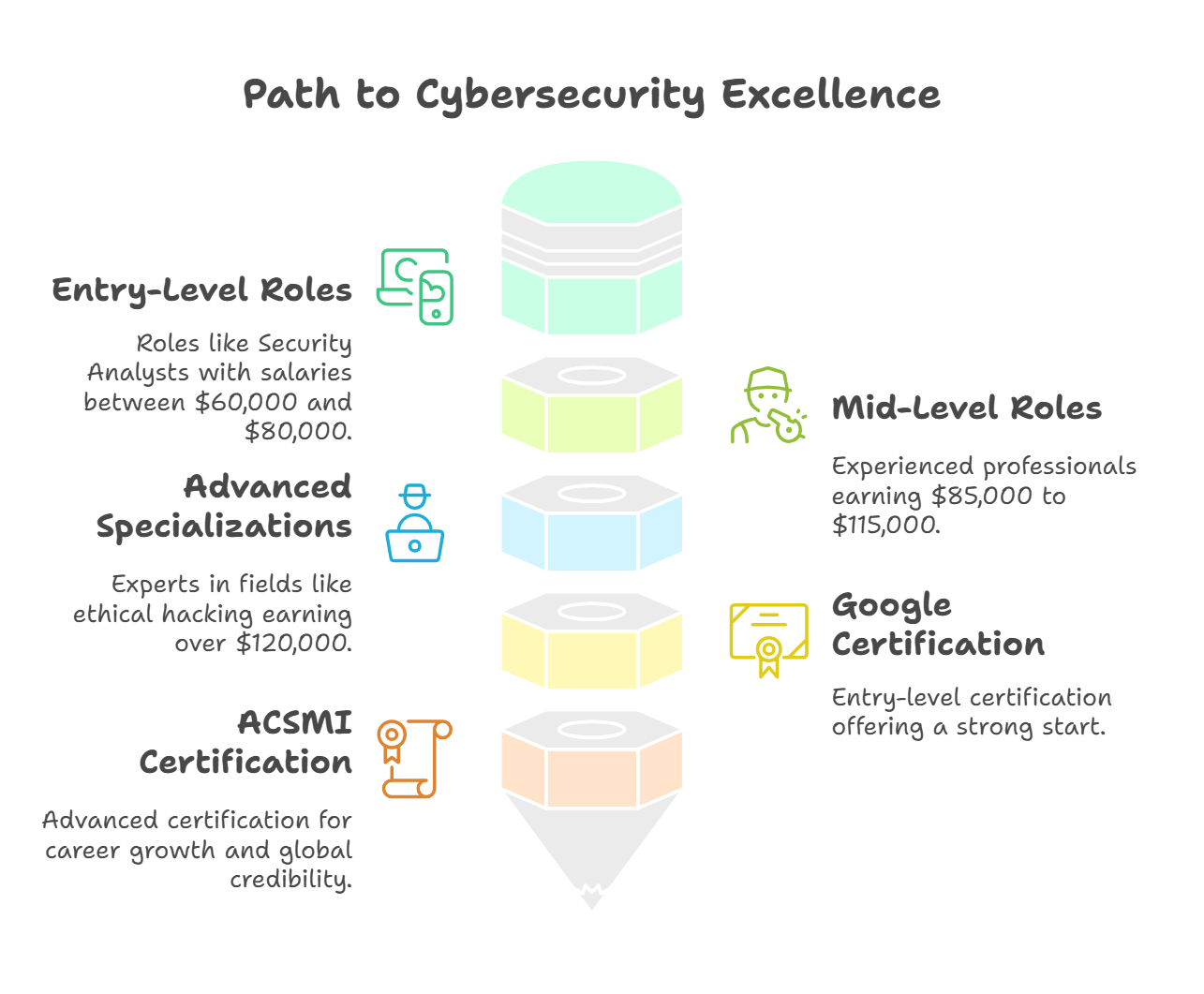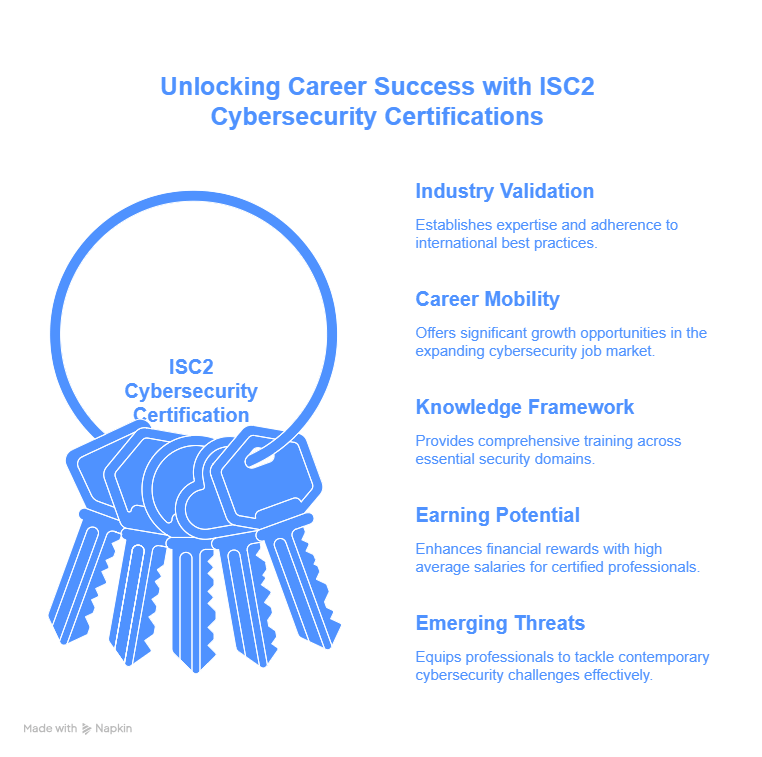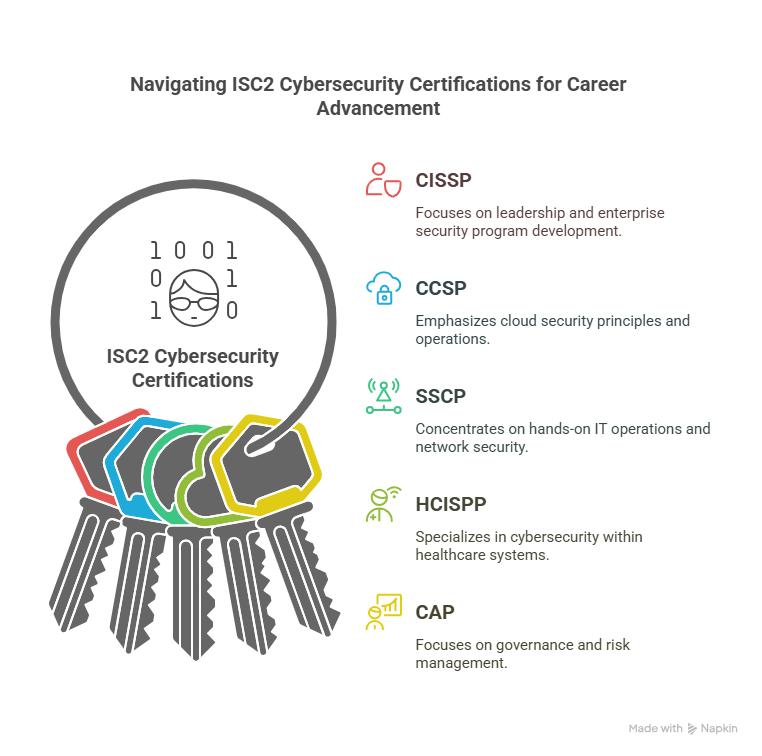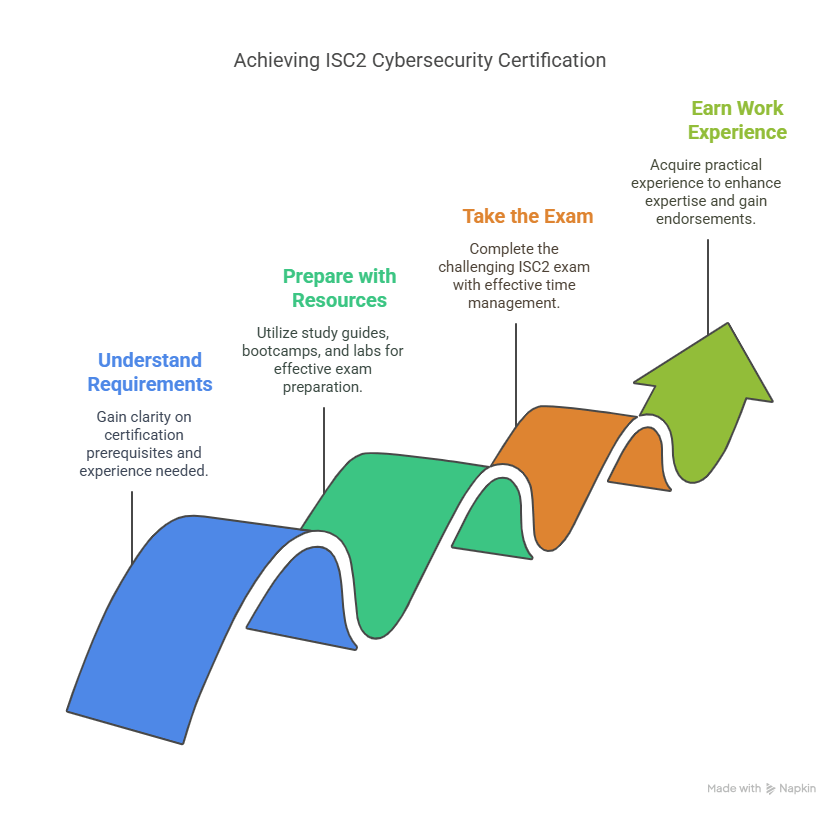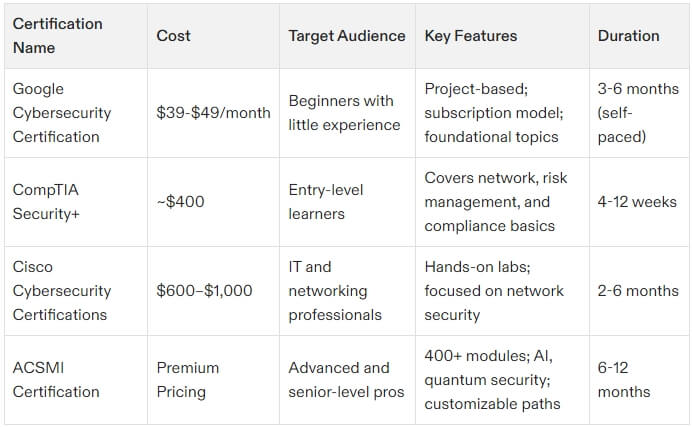Table of Contents
- Why Enroll in a Cybersecurity Certification Program?
- Top Cybersecurity Certification Programs
- How to Choose the Right Cybersecurity Certification Program?
- How to Prepare for a Cybersecurity Certification Program?
- Helpful Tips and Guides
- 1. Establish a Study Plan
- 2. Leverage High-Quality Study Materials
- 3. Practice with Mock Exams
- 4. Master Hands-On Skills
- 5. Utilize Time-Management Techniques
- 6. Join Online Communities and Study Groups
- 7. Stay Updated with Industry Trends
- 8. Use Mind Mapping Tools
- 9. Focus on Your Overall Well-Being
- 10. Maximize Resources Like ACSMI
- Informative Table – Overview of ACSMI Certification Modules
- FAQ Section
- Final Thoughts
The demand for skilled cybersecurity professionals has never been higher. To meet industry expectations and combat rising cyber threats, enrolling in a Cybersecurity Certification Program is a game-changing step for IT professionals, ethical hackers, and security analysts.
Why Enroll in a Cybersecurity Certification Program?
Cybersecurity certifications serve as validation of your expertise, offering significant benefits to professionals regardless of their experience level.
1. Validate Your Skills
A certification demonstrates your competence in areas such as threat recognition, vulnerability management, and incident response, giving you an edge in the competitive job market.
2. Increase Career Opportunities
Certified professionals often find it easier to land coveted roles, such as Cybersecurity Analyst, Penetration Tester, and CISO. Employers prioritize candidates with proven expertise over those without certifications.
3. Boost Your Salary Potential
According to surveys, certified cybersecurity professionals earn 20-25% higher salaries compared to non-certified counterparts. Certifications add credibility and justify higher pay scales.
4. Stay Ahead in a Rapidly Evolving Field
Cybersecurity policies and technologies change frequently, which makes continuous learning through certification programs vital for long-term success.
Top Cybersecurity Certification Programs
Not all certifications are created equal. Based on your career goals, you can select beginner, intermediate, or advanced certifications.
1. Certified Information Systems Security Professional (CISSP)
Ideal for professionals aiming to take on leadership roles in designing and implementing security programs.
- Focus Areas: Security engineering, risk management, identity and access management.
- Skill Level: Intermediate to Advanced.
2. Certified Ethical Hacker (CEH)
CEH certification is perfect for those looking to understand hacking practices and build preventive measures.
- Focus Areas: Penetration testing, vulnerability analysis, ethical hacking techniques.
- Skill Level: Beginner to Intermediate.
3. Systems Security Certified Practitioner (SSCP)
SSCP is ideal for network administrators and analysts developing foundational cybersecurity skills.
- Focus Areas: Best practices in network security, cryptography, and incident response.
- Skill Level: Beginner.
4. Certified Cloud Security Professional (CCSP)
Ensures your knowledge in cloud infrastructure security is up to industry standards.
- Focus Areas: Cloud architecture, data privacy, and regulatory compliance.
- Skill Level: Intermediate to Advanced.
To get the kind of comprehensive guidance required to ace these certifications, resources like ACSMI’s 400+ modules are indispensable. They blend technical frameworks and real-life scenarios to enrich learning.
How to Choose the Right Cybersecurity Certification Program?
1. Assess Your Career Goals
Are you gearing up for a role in penetration testing? Or do you prefer management-focused positions like a Security Consultant? Your career objectives should drive your choice of certification.
2. Check Eligibility Requirements
Some certifications, like CISSP, require prior work experience in a cybersecurity domain, while others, like Security+, are entry-level with no prerequisites.
3. Consider Industry Relevance
Research certifications that are well-regarded in your industry. For example, CCSP is sought after in cloud-based enterprises, whereas CEH appeals to companies focusing on software security.
How to Prepare for a Cybersecurity Certification Program?
Structured preparation is key to excelling in any cybersecurity certification exam. Here’s how you can achieve success.
1. Gain Hands-On Experience
Practical knowledge often trumps theoretical learning when it comes to cybersecurity. Platforms like ACSMI offer interactive labs and real-time incident simulations to strengthen your skills.
2. Use Comprehensive Study Materials
Invest in quality guides specific to your chosen certification. Popular resources include:
- CISSP (ISC)² Official Study Guide.
- CEH v12 Certified Ethical Hacker Study Guide.
- CompTIA Security+ Review Manual.
3. Practice Mock Exams
Taking practice exams replicates the actual test environment, boosting your confidence while highlighting areas needing improvement.
4. Utilize Time Management Techniques
Adopt time management strategies, such as the Pomodoro technique, to maximize productivity during your preparation phase.
5. Stay Updated
Subscribe to cybersecurity newsletters, podcasts, and webinars to keep tabs on the latest trends and technologies relevant to your study.
Helpful Tips and Guides
Preparing for a Cybersecurity Certification Program can be an intense yet rewarding experience. With effective strategies and the right resources, your certification goals are well within reach. Below are tips and tools to help you stay focused, organized, and motivated throughout the process:
1. Establish a Study Plan
A well-structured study plan is key to covering all the certification domains. Break down the syllabus into manageable sections and assign specific deadlines for each topic.
- Pro Tip: Dedicate time each week to reviewing previously covered areas to reinforce learning.
2. Leverage High-Quality Study Materials
Reliable materials are foundational for success. Use official certification guides, supplementary resources, and real-world case studies to gain a balanced understanding of both theory and practice.
- For example, resources like CISSP (ISC)² Official Study Guide provide exam-specific insights.
3. Practice with Mock Exams
Mock exams help simulate the real test environment, sharpen your analytical skills, and improve time management. Identify weak areas through these tests and revise those topics thoroughly.
- Platforms like ACSMI offer tailored practice exams aligned with certification needs.
4. Master Hands-On Skills
Practical skills are essential in cybersecurity. Enroll in labs and simulations to gain real-world experience in areas such as penetration testing, incident response, and risk assessment.
- Tools like ACSMI’s 400+ modules offer interactive labs and scenarios that bridge the gap between theory and application.
5. Utilize Time-Management Techniques
Balancing study time with other commitments can be challenging. Adopt methods like the Pomodoro Technique—study for 25 minutes, then take a 5-minute break to recharge. This prevents burnout and keeps focus intact.
6. Join Online Communities and Study Groups
Collaborating with peers can strengthen your grasp of challenging concepts. Online forums or certification-specific study groups provide opportunities to exchange ideas, clarify doubts, and stay motivated.
- Check platforms like LinkedIn or community-driven groups focused on certifications like CISSP or CEH.
7. Stay Updated with Industry Trends
Cybersecurity evolves rapidly, so staying informed about the latest tactics, tools, and threats is crucial. Subscribe to reputable newsletters or listen to industry-related podcasts.
- Recommended Blogs & Newsletters:
- ACSMI Learning Blog
- ThreatPost
8. Use Mind Mapping Tools
Visual learning can be extremely effective, especially when tackling complex subjects. Use tools like MindMeister or Canva to create flowcharts for topics such as compliance frameworks or risk management strategies.
9. Focus on Your Overall Well-Being
Don’t neglect your physical and mental health during preparation. Incorporate exercise, healthy eating, and adequate sleep into your routine. A well-rested mind is crucial for retaining information and performing well in exams.
10. Maximize Resources Like ACSMI
ACSMI’s 400+ modules cover a wide array of cybersecurity topics, from foundational knowledge to advanced application techniques. These resources are tailor-made for certification programs, ensuring you have everything you need to excel.
- Pro Tip: Make the most of ACSMI’s hands-on incident simulations to develop robust problem-solving abilities for real-world scenarios.
Informative Table – Overview of ACSMI Certification Modules
FAQ Section
1. What is a Cybersecurity Certification Program?
A cybersecurity certification program is a structured learning pathway designed to equip professionals with the skills and knowledge needed to safeguard digital infrastructures from cyberthreats.
2. How Long Does It Take to Complete a Certification?
Depending on your experience level and the certification, it may take anywhere from a few weeks to six months of preparation.
3. Are Cybersecurity Certifications Worth It?
Absolutely! A certification demonstrates credibility, improving job prospects and salary growth while keeping you ahead of evolving cyber threats.
4. Where Can I Find Learning Resources?
Platforms like ACSMI are excellent for accessing modules, hands-on training, and industry-relevant case studies.
5. What Are the Costs of Cybersecurity Certification Programs?
Costs vary widely, ranging from $300 for Security+ to $600 or more for advanced certifications like CISSP.
Final Thoughts
A Cybersecurity Certification Program is essential for anyone serious about thriving in this dynamic field. With the right preparation strategy, dedication, and tools like ACSMI’s 400+ modules at your disposal, you can unlock unparalleled career opportunities.


